Sir Henry Herbert was Master of the Revels to both King Charles I and King Charles II, as well as a politician during both reigns.
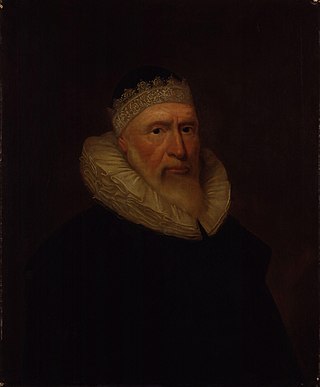
Sir Julius Caesar was an English lawyer, judge and politician who sat in the House of Commons at various times between 1589 and 1622. He was also known as Julius Adelmare.
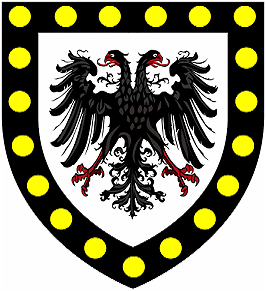
Sir Robert Killigrew (1580–1633) was an English courtier and politician who sat in the House of Commons at various times between 1601 and 1629. He served as Ambassador to the United Provinces.

Grey Brydges, 5th Baron Chandos of Sudeley Castle in Gloucestershire, was an English nobleman and courtier.
Lord William Howard was an English nobleman and antiquary, sometimes known as "Belted Will" or "Bauld (bold) Will".
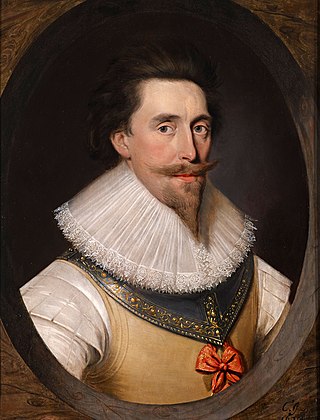
Francis Fane, 1st Earl of Westmorland, of Mereworth in Kent and of Apethorpe in Northamptonshire was an English landowner and politician who sat in the House of Commons between 1601 and 1624 and then was raised to the Peerage as Earl of Westmorland.
Anthony Irby was an English lawyer and politician who sat in the House of Commons at various times between 1589 and 1622.

Sir John St John, 1st Baronet of Lydiard Tregoze in the English county of Wiltshire, was a Member of Parliament and prominent Royalist during the English Civil War. He was created a baronet on 22 May 1611.

Sir Thomas Shirley, of Wiston in Sussex, was an English Member of Parliament, government official and courtier who is said to have suggested the creation of the title of baronet.

William Spencer, 2nd Baron Spencer of Wormleighton was an English nobleman, politician, and peer from the Spencer family.

John Astley, also seen as Ashley, was an English courtier, Marian exile, and Master of the Jewel Office. He was a Member of Parliament on many occasions.
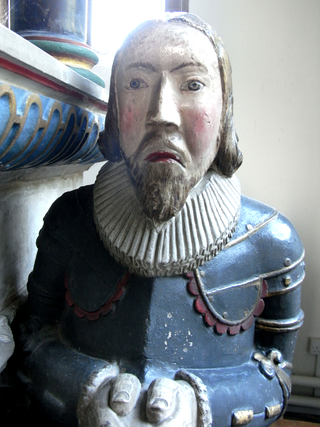
Sir Francis Popham (1573–1644) of Wellington, Somerset, was an English soldier and landowner who was elected a Member of Parliament nine times, namely for Somerset (1597), Wiltshire (1604), Marlborough (1614), Great Bedwin (1621), Chippenham 1624, 1625, 1626, 1628–29), and for Minehead (1640–1644).
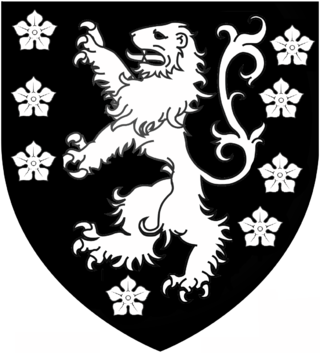
Sir Gervase Clifton, 1st Baronet, K.B. was an English politician who sat in the House of Commons at various times between 1614 and 1666. He supported the Royalist cause in the English Civil War. He was educated at St John's College, Cambridge.
Henry Grey, 1st Lord Grey of Groby was an English landowner, soldier, courtier, magistrate, county administrator, and member of parliament.

Sir Edward Barkham was an English merchant who was Lord Mayor of London in 1621. He derived from the Barkham family of South Acre, Norfolk.
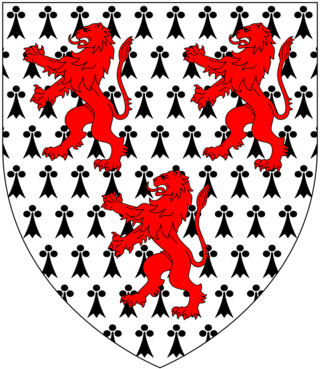
Sir George Chudleigh, 1st Baronet, of Ashton, Devon, was an English landowner and politician, who sat in the House of Commons at various times between 1601 and 1625. He had close family connections to a group of Devon Presbyterians, including Sir William Strode.
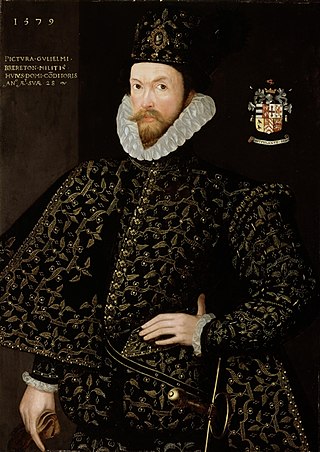
William Brereton, 1st Baron Brereton was an English politician who sat in the House of Commons at various times between 1597 and 1622. He was created a peer in the Peerage of Ireland in 1624 as Baron Brereton.
Thomas Beaumont, 1st Viscount Beaumont of Swords was an English politician who sat in the House of Commons between 1604 and 1611. He was raised to the peerage in 1622.
Thomas Darcy, 1st Earl Rivers was an English peer and courtier in the reigns of Elizabeth I, James I and Charles I.

Sir John Ogle (1569–1640) was an English military commander.













